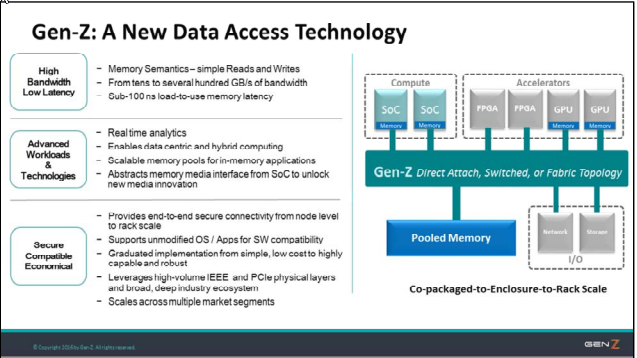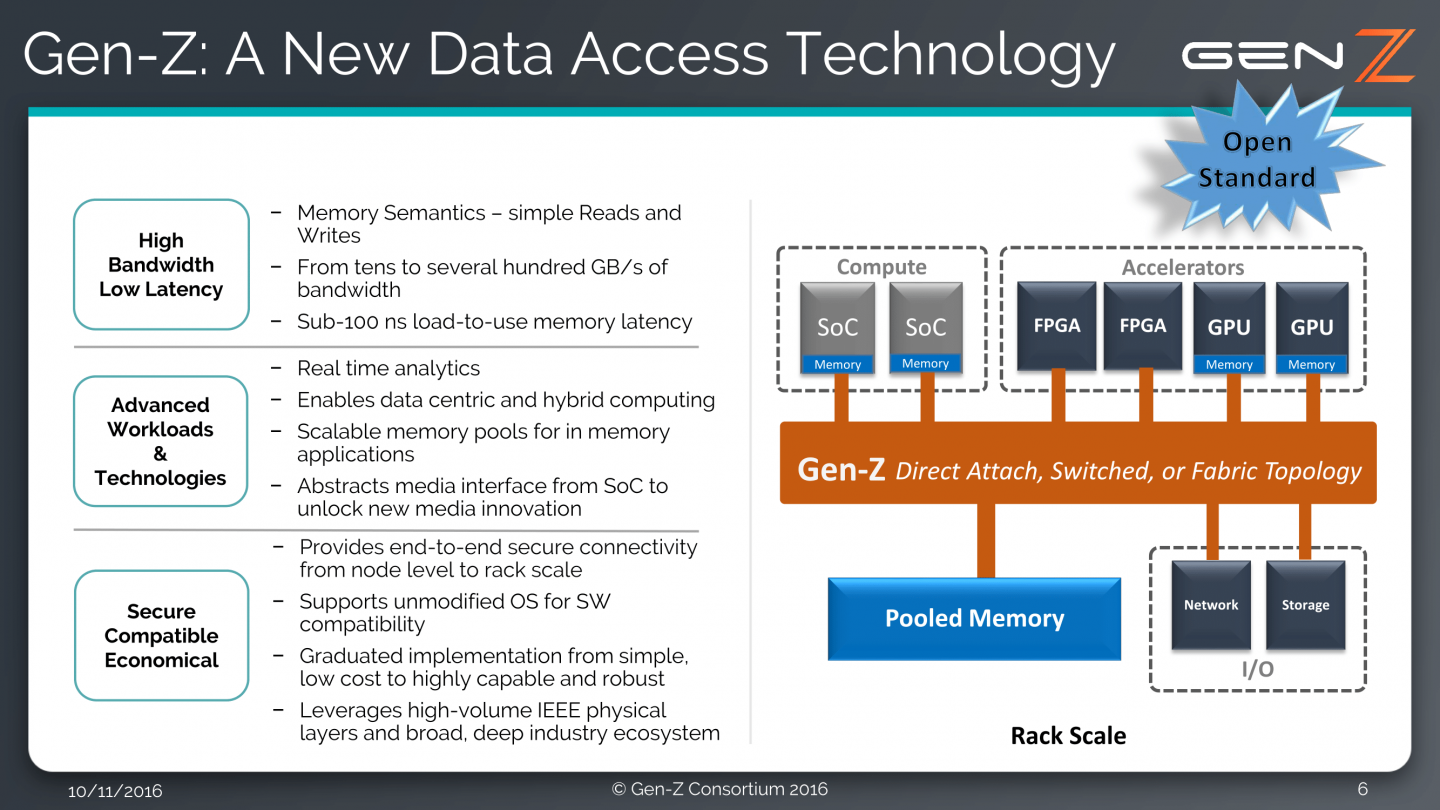A consortium of multiple (and many) technology companies have released Gen-Z Core Specification revision 1.0, the new standard has the potential and will to replace PCI-Express. It would be able to transfer hundreds of gigabytes per second, per device. The new Gen-Z would be an open and royalty-free standard.
Before we start, many companies are taking part in this project, including some very big names. Pretty much the entire industry that has any relevance is listed, but two big names are missing, being Intel and Nvidia. Originally founded AMD, ARM, Broadcom, Cray, Dell EMC, Hewlett Packard Enterprise, Huawei, IDT, Micron, Samsung, SK hynix, and Xilinx they aim to create the next generation interconnect. Currently, over 50 companies have joined up and are listed.
Much like the PCIe interface, Gen-Z is an interconnect, a way of allowing your computer components to 'talk' to each over what you might call a data-highway. E.g. A GPU or SSD to your chipset or CPU. While PCIe express 4.0 as a standard is already finished (doubles up the bandwidth over PCIe Gen 3.0), the Gen-Z consortium feels that the development rate for PCIe simply is too slow. Next to that, in this day and age workloads, have changed if you think about AI, big data, and anything HPC. PCI-Express also is limited as a point to point connection, whereas Gen-Z likely could bypass that, perhaps even talk to memory. All Gen-Z components will make use of the same connector and benefit from the standard low latency and high bandwidth.
The standard is now ready, now it's up to the industry to develop products utilizing Gen-Z, and that might actually be the biggest challenge. More information can be found at the Gen-Z website.
Possible PCIe successor Gen-Z Reaches Version 1.0 Development Stage




